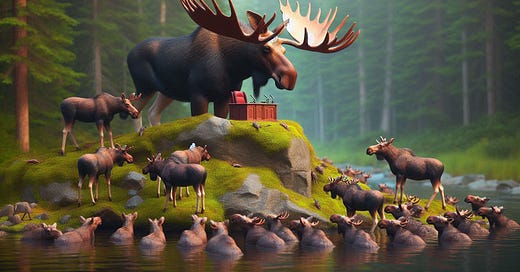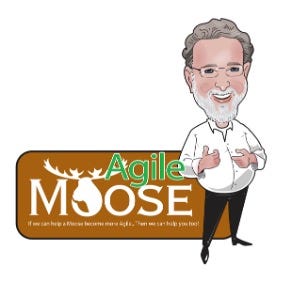In a recent Business Agility Institute newsletter, Evan Leybourne shared an article entitled—
Move Fast and Break People: The Rise of Authoritarian Leadership
Here’s the opening—
I'm worried.
With data from over two thousand organizations collected over the last seven years, I'm seeing an alarming trend emerging in the business world. The data suggests that a growing number of business leaders are increasingly embracing authoritarian leadership.
Authoritarian leadership, characterized by impulsive decisions, centralized power, and an aggressive "move fast and break things" mindset, is quickly becoming normalized. Influential business leaders, such as Elon Musk, are creating a perception that it's not only acceptable but perhaps even admirable to lead through dominance and unilateral decision-making.
While a "move fast and break things" culture can spur rapid innovation, when combined with a disregard for the human element (people aren't “things”) and a sense of entitlement (or “I'm worth more than you”), substantial issues start to emerge. Authoritarian leaders often undervalue diversity of thought—precisely the diversity that protects leaders from their own cognitive blind spots.
Without an environment that encourages openness, debate, and challenge, these leaders create echo chambers, severely limiting their ability to adapt to evolving realities.
My Take
First, I would rename the article to "Move Fast and Break People: The Resurrection of Authoritarian Leadership." I don’t think it’s something new. I think it’s an old and bad idea that, for some unknown reason, is being allowed to emerge from the shadows again—sort of like zombie leadership.
Second, I’m equally worried.
It does seem as if we’re losing our regard for people, with examples including—
Corporate leaders who are aligning themselves and their companies with totalitarian figures.
A declining focus on DEI initiatives in organizations.
A declining focus on distributed work environments, with many examples of take it or leave it return to work policies.
What seems to be a reversion back to Tayloristic management practices.
The rising tide of belief that AI will be replacing people, lots of people.
The declining focus on the environment (global warming and sustainability).
A lack of momentum of the restorative leadership movement.
In the United States a real challenge to our free and open press and our legal systems. That said, you also see this in other totalitarian societies around the globe.
And the list goes on.
On the DEI front, I recently saw this post by Gustavo Razzetti—
DEI Is Dead: Long Live an Open-Minded Culture
Inclusion without division – rethinking diversity in a polarized workplace
Like it or not, DEI is dead – not because diversity, equity, and inclusion don’t matter (they do), but because the term itself has become a minefield. Once a corporate rallying cry for fairer workplaces, DEI has been stretched, misused, and weaponized. What started as a symbol of unity is now divisive, with some even using it as an insult.
The backlash against DEI is undeniable. Since late 2024, big companies like McDonald’s, Target, Amazon, and Meta have quietly dismantled or scaled back their DEI programs. Government agencies have been ordered to erase references to diversity, equity, and inclusion from government websites and policies – sometimes in absurd ways, like banning hundreds of words or removing heroes from history.
The chilling effect is real. Corporate America is navigating uncertainty, caught between legal scrutiny, public opinion, and its commitment to fairness and inclusion.
Some companies are retreating entirely, using the backlash as an excuse to cancel programs that were more about looking good than doing good. Others, like Apple and Costco, are standing firm despite political threats. But for most, the path is threatening. Many opt for a “DEI by stealth” approach – doing what’s right but stripping official language that triggers controversy.
Respectfully Disagree
I must respectfully disagree with Gustavo. DEI is only dead if we allow it to die. I would also argue that changing our language based on the current challenging climate does a disservice to the practical focus on DEI. If we allow external forces to force us to change our language, which is what’s happening, then I would argue that they have won. They have diminished us—diminishing the people.
We can’t allow the People to be lost or broken!
The real point of this post is that we (you, I, all of us) need to fight for the people in the equation.
We are not resources
We are not tokens
We are not a process that can be automated
We are not what others say we are
We cannot allow ourselves to be defined by others
We cannot allow the 1% to rule the 99%
We cannot support the powerful over the powerless
We cannot destroy the planet for our descendants
Every one of us matters. We need to regain respect and value for humans and human life—all humans!
Society and governments matter. Business matters. Progress matters. Change matters. Many things matter, but people matter most.
I want to thank Evan for inspiring me and getting me fired up about this topic. You can see my own reactions to DEI here. I think it took quite a bit of courage for him to write about this topic, and I applaud him for it.
Stay agile, and PEOPLE-centric, my friends,
Bob.
Whatever your role or experience, life in the agile space can be challenging today. Having someone to serve as your coach, as a sounding board, be a truthteller, and become a trusted partner on tap to leverage during those tricky bits can be helpful. That’s precisely where Agile Moose can help you.
We’re not just an Agile Coach, but a business domain expert, a personal advisor, an organizational design and development consultant, and a leadership coach and partner.
The moose brings over 35 years of technical and product leadership experience across a broad range of contexts. If you’re stuck and know it, reach out, as I can help.






Here's a related post by Sandy Mamoli - https://www.linkedin.com/pulse/doing-more-less-why-simply-working-harder-isnt-answer-sandy-mamoli-57wgc/